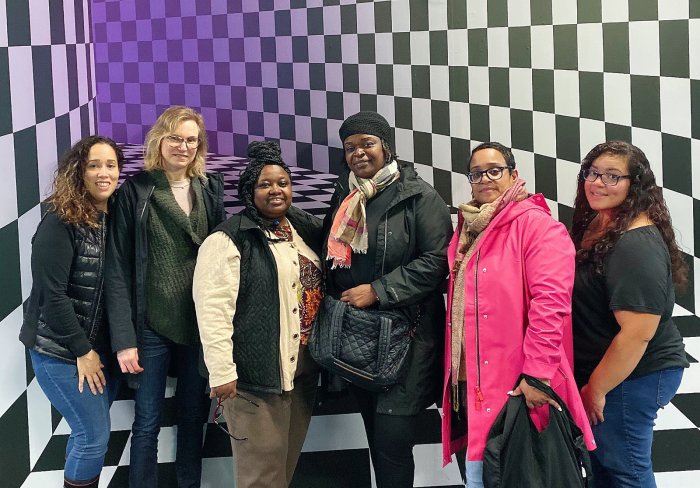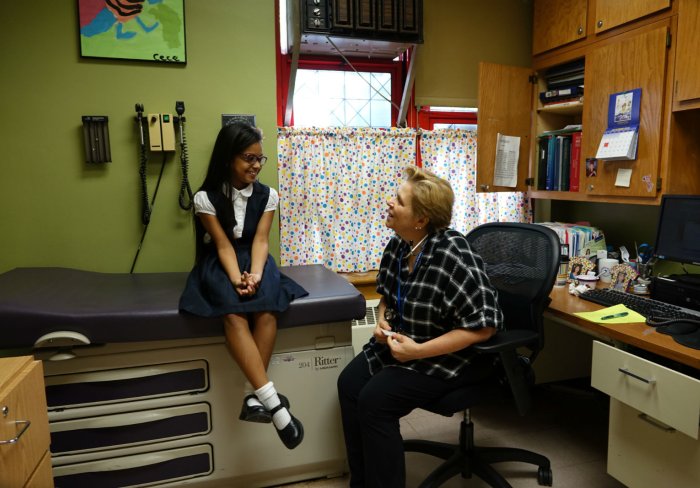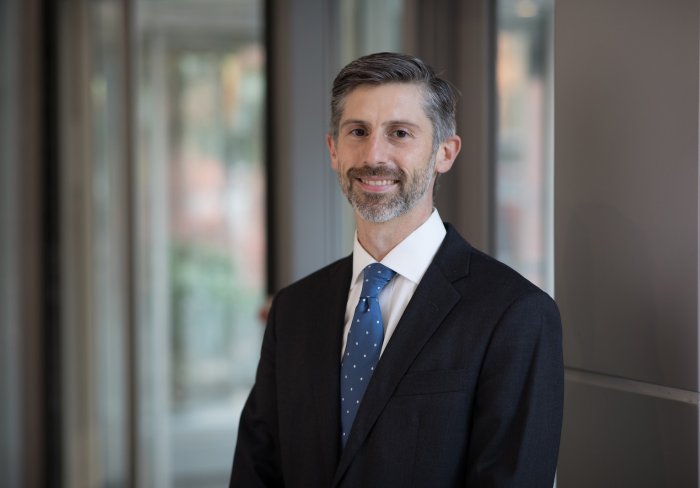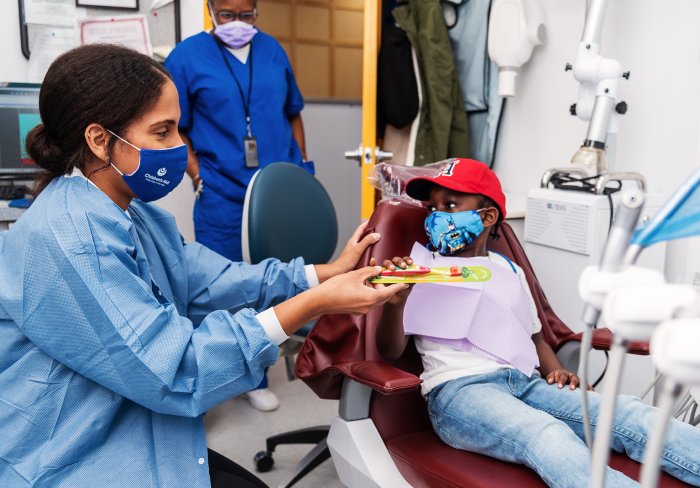When Germany began bombarding Italy during World War II, Barbara Doherty’s grandparents didn’t just sit back and watch in horror. Instead, they utilized their resources and medical expertise to care for wounded American and British soldiers.
Living in Venice, Barbara’s family experienced some of the most severe destruction in the country. Her grandmother, Luigia Sultato, used her nursing background to patch up soldiers in her basement, while her grandfather, Damiano Sultato, hid soldiers inside his boat, which he used to transport stones for the construction of a new casino.
“They were quite an operation,” she said. “My grandfather was a partisan, so he refused to go with the fascists. They were a team and used to go and help the wounded. I always wanted to be like my grandmother because she brought me up. She was my hero.”
To fulfill her dream of becoming a nurse, Barbara took a circuitous approach. Since high school was not compulsory in Italy, she worked as a waitress to afford registration and books. At 18, she moved to London, where she worked for Air France and United Airlines as a checking and departures supervisor for six years.
“I always wanted to be a nurse, but college isn’t free,” she said. “Unfortunately, my background is that I come from a poor family and we couldn’t afford it.”
While Barbara worked in London, her mother had other plans for her. Through a connection with an Italian-American family in New Jersey, Barbara was able to move across the pond and pursue her dream. She was excited to make the move, but also nervous to start school in a new country and study in a different language.
Barbara attended Ramapo College of New Jersey and Rockland Community College to obtain her nursing degree. Initially, her goal was to work with the geriatric population, but she quickly discovered that she was better suited to work with younger patients.
“I ended up where I never thought I’d end up. I had child and I thought [pediatrics] was too close to home,” she said. “I thought I wouldn’t be strong enough to take care of very sick children, but it’s such a passion that I don’t see myself being able to work with anyone but children.”
A few months after graduating, Barbara was diagnosed with Hodgkin’s Lymphoma. She secured a job in pediatric home care to avoid hospital settings and minimize the risk of infection while she received chemotherapy treatment. Some of her patients also had hematological diseases like sickle cell anemia and leukemia. Caring for them during her treatment gave her strength during a challenging period in her life, she said.
Once in remission about a year after her diagnosis, Barbara went to work for Elizabeth Seton Children’s Center and Blythedale Children’s Hospital, both institutions that serve children with medically complex needs. During her tenure, Barbara formed relationships with many children in foster care and sought to improve outcomes for these young people.
“I felt like I wanted to give more to the community,” she said. “I started to look for a job that could give me more leadership and allow me to bring ideas about how we can improve the lives of children in foster care that need medical care.”
She found that job at Children’s Aid, serving as the nurse administrator for medically fragile children and youth at our Bronx Medical Center. In her role, she supervises a team of nurses who not only provide medical care but advocate for their patients – children ages 0 to 22. Their patients have a variety of illnesses, including sickle cell anemia, cardiac congenital diseases, autism, Down syndrome, developmental delays, and more.
Lauren Jen, the assistant medical director for school and camp health at Children’s Aid, said Barbara has strengthened the relationships between the nurses and foster care team and created a comprehensive onboarding manual for new nurses to make their transitions as seamless as possible.
“Most importantly, she is a fierce advocate for her patients and her nursing team,” Jen said.
The nurses who work in our medical foster care department must establish relationships with biological parents, foster parents, case planners, specialists, primary care doctors, and more. They schedule medical appointments, make home visits, and advocate for the best care. Barbara, who sometimes manages her own caseload of patients, is there to troubleshoot and answer any questions nurses may have.
“The door is always open and the phone is always on,” she said.
In addition to complex medical needs, many of the children Barbara cares for have experienced significant trauma. Despite this, she’s learned valuable life lessons from them.
“I see them always smiling,” she said. “That’s what I’m learning. Whenever we have challenges in life, we should be more like them – strong and always positive. And brave, they’re very brave.”







